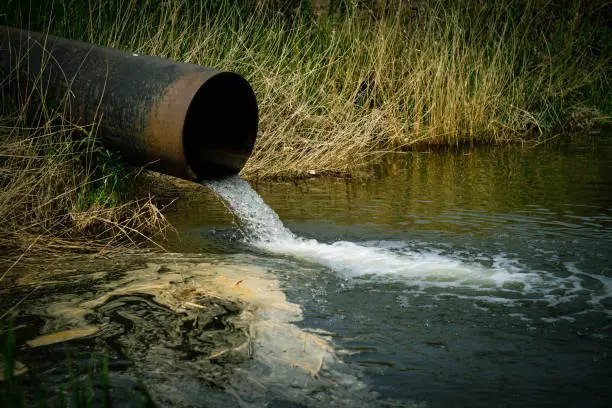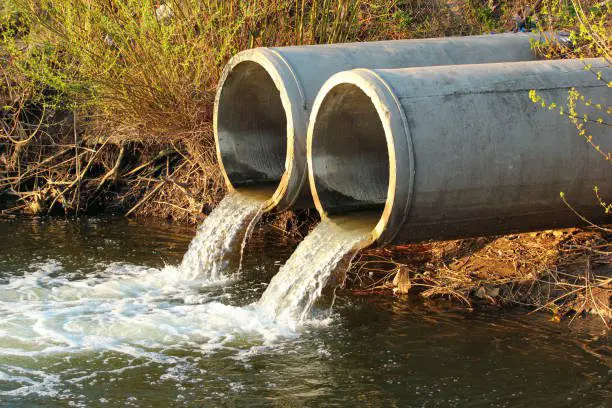Grey water refers to wastewater generated from non-toilet plumbing fixtures such as sinks, showers, baths, and washing machines. It is called “grey” water because it is usually slightly grey in color due to the presence of soap, dirt, and other organic matter.
Grey water is distinct from “black” water, which comes from toilets and is typically contaminated with fecal matter and other harmful pathogens. Unlike black water, grey water can be reused for non-potable purposes such as irrigation, flushing toilets, and cleaning.
Grey water contains some levels of contaminants and must be treated appropriately before reuse. The level of treatment needed depends on the intended use of the water and the regulations in the specific location.
Greywater systems are becoming increasingly popular as a way to conserve water, reduce energy usage, and save money. However, it is essential to consult with a professional before installing and using a greywater system to ensure that it is safe and meets local regulations.
Ways To Generate Income From Grey Water

Greywater is wastewater that comes from household activities like laundry, dishwashing, and bathing. While greywater is not potable, it can be treated and reused for non-potable purposes such as irrigation and toilet flushing. Here are some ways to generate income from greywater:
(1) Selling greywater for irrigation
If you live in an area with a high demand for irrigation water, you can treat and sell greywater to farmers, landscapers, or golf courses. Selling greywater for irrigation can be a potential source of income, especially in areas where water is scarce and irrigation is essential for agriculture.
Greywater is wastewater generated from domestic activities such as bathing, washing clothes, and dishes, which can be treated and reused for irrigation purposes.
The income potential from selling greywater for irrigation depends on various factors, such as the availability of greywater sources, the demand for irrigation water, and the cost of treatment and distribution.
Typically, the cost of greywater treatment and distribution can range from a few cents to a few dollars per gallon, depending on the treatment technology used and the distance between the source and the irrigation site.
To determine the income potential, you would need to calculate the cost of treatment and distribution, and then compare it with the market price of irrigation water. The market price of irrigation water can vary depending on the crop type, the location, and the prevailing water scarcity conditions. In some cases, the price of irrigation water can be several dollars per thousand gallons.
In addition to the income potential, selling greywater for irrigation can also provide environmental benefits by reducing water use and minimizing the discharge of wastewater to the environment. However, it’s important to ensure that the greywater is treated to a suitable quality for irrigation and that the irrigation practices are appropriate to avoid any negative impacts on crops or the environment.
Read Also: Ways To Generate Income From Dog Wastes
(2) Offering greywater treatment services
You can start a business that specializes in treating and reusing greywater. This can include designing and installing greywater treatment systems in homes and businesses. Greywater treatment services can be a potential source of income for businesses or individuals who offer them.
Greywater is wastewater from sources such as sinks, showers, and washing machines, which can be treated and reused for non-potable purposes such as irrigation or toilet flushing. There are several ways in which one can generate income from offering greywater treatment services:
Service Fees: You can charge a fee for treating and recycling greywater. The fee can be based on the volume of greywater treated or the number of people in the household.
Installation Fees: You can also charge a fee for installing greywater treatment systems in homes or businesses. The fee can vary depending on the complexity of the installation.
Maintenance Fees: You can offer regular maintenance services for greywater treatment systems, such as cleaning filters and replacing parts. You can charge a fee for these services.
Product Sales: You can sell products related to greywater treatment, such as filters, pumps, and other equipment.
Consulting Services: You can offer consulting services to homeowners, builders, and architects on the design and implementation of greywater treatment systems.
The income potential from offering greywater treatment services will depend on various factors such as the size of the business, the types of services offered, and the target market. However, with the increasing demand for sustainable solutions, offering greywater treatment services can be a profitable venture.
(3) Selling greywater for industrial uses
Some industries require large amounts of non-potable water for their operations. You can sell treated greywater to these industries, such as car washes or construction companies. Greywater treatment services can be a potential source of income for businesses or individuals who offer them.
Greywater is wastewater from sources such as sinks, showers, and washing machines, which can be treated and reused for non-potable purposes such as irrigation or toilet flushing. There are several ways in which one can generate income from offering greywater treatment services:
Service Fees: You can charge a fee for treating and recycling greywater. The fee can be based on the volume of greywater treated or the number of people in the household.
Installation Fees: You can also charge a fee for installing greywater treatment systems in homes or businesses. The fee can vary depending on the complexity of the installation.
Maintenance Fees: You can offer regular maintenance services for greywater treatment systems, such as cleaning filters and replacing parts. You can charge a fee for these services.
Product Sales: You can sell products related to greywater treatment, such as filters, pumps, and other equipment.
Consulting Services: You can offer consulting services to homeowners, builders, and architects on the design and implementation of greywater treatment systems.
The income potential from offering greywater treatment services will depend on various factors such as the size of the business, the types of services offered, and the target market. However, with the increasing demand for sustainable solutions, offering greywater treatment services can be a profitable venture.
Read Also: Ways To Generate Income From Demolition Wastes
(4) Providing greywater harvesting and reuse consulting services
If you have expertise in greywater harvesting and reuse, you can offer to consult services to individuals, businesses, and municipalities. Greywater harvesting and reuse consulting services can be a lucrative business, especially as more people become aware of the need to conserve water resources.
The income you can earn from providing such services will depend on various factors, including your experience, reputation, location, and the demand for your services. Here are some potential sources of income from providing greywater harvesting and reuse consulting services:
Consultancy fees: You can charge a fee for providing consultation services to clients who want to set up greywater harvesting systems. The fee can be charged on an hourly or project basis, depending on the scope of work involved.
Design fees: If you have expertise in designing greywater harvesting systems, you can charge a fee for creating the plans and specifications for the system.
Installation fees: If you have the necessary skills and equipment to install greywater harvesting systems, you can charge a fee for installation services.
Maintenance and repair fees: You can also offer maintenance and repair services for existing greywater harvesting systems, charging a fee for each service call.
Training and education fees: You can provide training and educational services to clients who want to learn about greywater harvesting and reuse. You can charge a fee for conducting workshops, seminars, or training programs.
The amount you can charge for your services will depend on various factors such as your expertise, reputation, and the complexity of the project. It’s a good idea to research the market rates for similar services in your area to ensure that you are charging a fair price. With a well-established business, you may be able to earn a substantial income from providing greywater harvesting and reuse consulting services.
(5) Creating greywater-based products
You can use treated greywater as a base for creating products such as organic fertilizers or biodegradable soaps. Greywater is wastewater that comes from sources such as showers, bathtubs, bathroom sinks, and washing machines. While it’s not suitable for drinking, greywater can be treated and reused for non-potable purposes like watering plants or flushing toilets.
Creating greywater-based products can be a viable business idea, but it will depend on the specific products you are planning to make and the market demand for them. Some potential product ideas could include:
Greywater filtration systems: You could design and sell greywater filtration systems that treat and clean greywater for reuse. This could be particularly useful for homeowners who want to reduce their water usage and environmental impact.
Greywater planters: You could create planters that are specifically designed to use greywater for irrigation. This could be a great option for people who want to grow plants in areas with limited water access or who want to reduce their water usage.
Greywater detergent: You could create a detergent that is specially formulated to work with greywater. This could be particularly useful for people who use greywater for washing clothes and want to ensure that the detergent they use won’t harm their plants or the environment.
Greywater irrigation systems: You could create irrigation systems that are designed to use greywater for watering lawns and gardens. This could be a great option for people who live in areas with water restrictions or who want to reduce their water bill.
Before investing in creating greywater-based products, it’s important to research the market demand and competition for these products. You should also consider the regulations and legal requirements for treating and reusing greywater in your area.
(6) Renting out greywater treatment equipment
If you have the resources, you can buy or build greywater treatment equipment and rent it out to those who need it. Renting out greywater treatment equipment can potentially provide a source of income.
Greywater refers to wastewater generated from household activities such as laundry, dishwashing, and bathing. Greywater treatment equipment is designed to treat and reuse this wastewater for non-potable purposes such as irrigation and toilet flushing.
The income generated from renting out greywater treatment equipment will depend on several factors such as the size of the equipment, the rental fee, and the demand for such equipment in the local market. The rental fee may be charged on a daily, weekly, or monthly basis, depending on the rental agreement.
It is important to note that there may be legal and regulatory requirements for the installation and operation of greywater treatment equipment, which may vary depending on the location. Thus, it is crucial to research and complies with any relevant regulations before renting out such equipment.
Additionally, maintenance and repair costs for the equipment should be factored into the rental fee. Providing maintenance and repair services can also be a potential source of income.
Renting out greywater treatment equipment can be a viable business opportunity, but it requires careful consideration of various factors to ensure profitability and compliance with regulations.
Keep in mind that some of these income-generating opportunities may require permits, licenses, or other legal considerations. Additionally, it’s important to ensure that greywater is properly treated to avoid health and environmental risks.
Read Also: 10 Health Benefits of Onions (Allium cepa)

